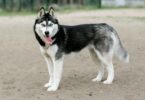What happens when you combine two of America’s favorite family dogs into one unforgettable companion? Meet the energetic hybrid that’s stealing hearts nationwide—a playful blend of intelligence, loyalty, and compact charm.
This crossbreed merges the Labrador’s enthusiasm with the Corgi’s spirited personality. Owners often describe them as perpetual puppies—full of energy yet deeply devoted to their families. Their adaptable nature makes them equally suited for apartment living or country adventures.
Both parent breeds bring distinct advantages to this mix. You’ll notice keen intelligence paired with a strong desire to please, traits that make training rewarding. Their medium size and expressive faces often draw smiles from strangers during neighborhood walks.
Why are families increasingly choosing this hybrid? Beyond their irresistible appearance, these dogs form extraordinary bonds with owners. They thrive on interaction and require mental stimulation to stay content.
This guide explores what makes this breed stand out in today’s diverse pet landscape. Discover care strategies tailored to their unique needs and learn how to nurture their best qualities. Ready to uncover why this mix could be your ideal furry partner?
Introduction to Your New Best Friend
Meet the hybrid dog that’s redefining family dogs. Combining a service animal’s intelligence with a herding breed’s devotion, this energetic mix excels at forming deep bonds. Their adaptable personality fits seamlessly into active homes or calmer spaces.
As a corgi lab mix, these pets inherit a unique balance of traits. They showcase a Labrador’s enthusiasm for group activities alongside a Corgi’s focus on their favorite humans. This blend creates a loyal playmate for kids and a watchful yet affectionate household member.
Social by nature, they flourish when included in daily routines. Morning walks, puzzle toys, or simply lounging together strengthen their connection to the family unit. Their moderate size makes them versatile companions for city apartments or suburban yards.
What distinguishes this crossbreed? They maintain puppy-like energy while displaying surprising emotional intelligence. Owners appreciate their ability to switch from playful antics to calm companionship, adapting effortlessly to their environment’s demands.
Understanding the “welsh corgi labrador mix”
The fusion of distinct canine lineages creates a pet that answers to multiple names. Officially called a Corgidor, this crossbreed combines Labrador Retriever and Welsh Corgi genetics. You might also hear terms like Lab Corgi Mix or Corgi Lab when discussing these energetic companions.
Hybrid vigor plays a key role in this mix’s appeal. Crossbreeding often reduces inherited health issues while blending desirable traits. The result? A dog that typically outshines purebred parents in resilience and adaptability.
Unlike established breeds recognized by major kennel clubs, the Corgidor remains unregistered. Breeders focus on enhancing intelligence and affectionate qualities rather than meeting pedigree standards. This approach creates animals ideal for families seeking loyal, trainable pets.
Physical traits vary but often include a sturdy frame and expressive eyes. Behaviorally, they merge a retriever’s enthusiasm with a herding breed’s attentiveness. For those exploring hybrid dogs, understanding other popular crossbreeds helps compare options.
Responsible breeding programs prioritize temperament and health screenings. Prospective owners should verify breeder credentials to ensure ethical practices. This diligence helps maintain the mix’s reputation as a joyful, family-oriented companion.
Exploring the Parent Breeds and Their Heritage
Understanding your dog’s lineage reveals why they behave certain ways. Both parent breeds contribute distinct traits that shape personality and care needs. This knowledge helps owners create nurturing environments tailored to their pet’s instincts.
Labrador Origins and Family Traits
Originally bred in Newfoundland as fishing companions, Labs evolved into versatile working dogs. Their waterproof coats and strong retrieving instincts made them ideal for waterfowl hunting. Today, these traits translate into playful splashing sessions and endless fetch games.
Ranked America’s most popular dog for 30+ years, Labs thrive in family settings. Their gentle nature and patience with children stem from generations of cooperative work with humans. This social drive makes them eager participants in group activities.
Welsh Corgi History and Unique Qualities
Developed as cattle herders in Wales, these compact dogs used agility and intelligence to manage livestock. Their low stature helped avoid kicks while nipping at cattle heels. This history explains why some mixes try to “herd” running children or pets.
While affectionate with families, Corgis often bond closely with one person. This loyalty stems from their role as dedicated working partners to farmers. Their alertness and protective instincts make excellent watchdogs, though early socialization prevents over-guarding behaviors.
Combining these lineages creates dogs that balance a Lab’s sociability with a Corgi’s focus. For insights into other breeds with strong herding instincts, explore our comparative guides.
Unique Traits and Distinguishing Characteristics
A dynamic fusion of intelligence and affection defines this crossbreed’s appeal. The dog combines a Labrador’s social charm with a herding breed’s watchful nature, creating a personality that adapts to both playtime and protective roles. You’ll notice their knack for reading moods—cheering up stressed owners or settling calmly during quiet evenings.
Training sessions showcase their sharp problem-solving skills. These dogs master basic commands quickly but thrive when challenged with advanced tricks or interactive puzzles. Their eagerness to please makes them responsive to praise-based methods, though consistency prevents stubborn streaks inherited from both parent breeds.
Energy levels remain high throughout adulthood, requiring daily walks and mentally engaging games. A bored corgi lab mix might invent entertainment—sometimes rearranging household items or “supervising” backyard activities. Their playful antics pair with deep loyalty, often shadowing family members while keeping a friendly demeanor toward guests.
Adaptability shines in their ability to thrive in various homes. Compact size suits apartments if exercise needs are met, while yards satisfy their love for exploration. This balance of enthusiasm and devotion makes them ideal companions for active households seeking a clever, affectionate pet.
Physical Appearance and Size Details
Appearance surprises await owners of this hybrid breed. Their build reflects a genetic lottery between parent breeds, creating striking variations in stature and proportions. Understanding these physical traits helps prepare for their care needs and living requirements.
Weight, Height, and Size Variations
Adult dogs typically weigh 30 to 60 pounds—a range spanning two breed standards. Height differences prove equally dramatic, measuring anywhere from 10 to 24 inches at the shoulder. Some inherit the Labrador’s athletic frame, while others showcase the Corgi’s compact build.
Puppy growth patterns remain unpredictable until maturity. Prospective owners should plan for both size extremes when selecting collars, beds, and exercise equipment. Space considerations vary too—larger versions need room to stretch, while smaller ones adapt well to cozy homes.
Coat Type and Color Patterns
The double-layered coat combines weather resistance with seasonal adaptability. Thick undercoats provide insulation, while outer layers repel dirt and moisture. Weekly brushing manages shedding, especially during spring and fall coat blows.
Color possibilities range from solid hues to striking combinations. Common shades include classic black, golden yellow, and rich chocolate. Some display sable patterns or red accents, creating one-of-a-kind appearances that turn heads at dog parks.
Personality, Temperament, and Family Compatibility
Looking for a four-legged family member who thrives on human connection? These energetic companions combine sharp minds with heartfelt devotion. Their natural desire to participate in daily life makes them ideal for households seeking an interactive pet.
Eager-to-Please Nature and Intelligence
These clever canines live to make their people happy. Quick learners master basic commands in days and excel at advanced tricks with consistent training. Food puzzles and scent games keep their active brains engaged while reinforcing positive behaviors.
Children find patient playmates who adapt to different energy levels. Young kids appreciate gentle fetch sessions, while older siblings enjoy teaching new skills. Early socialization helps them coexist peacefully with cats and other pets, especially when introduced during puppyhood.
Attention-seeking behaviors emerge when they feel excluded. Structured activities like family walks or hide-and-seek games channel this trait productively. Their emotional intelligence shines through during stressful moments—many owners report their dogs offering comfort during tough days.
Loyalty manifests through constant companionship rather than protective instincts. They prefer snuggling on couches to guarding doorways, though alert barking at unfamiliar sounds comes naturally. This balance of affection and awareness creates reliable partners for diverse lifestyles.
Health Concerns and Common Issues
Proactive care helps these energetic companions thrive throughout their lifespan. While generally robust, hybrid dogs may inherit conditions from their parent breeds. Early detection and preventive measures significantly improve quality of life.
Genetic Risks and Prevention Strategies
Joint problems rank among the most common health challenges. Patellar luxation causes kneecap slippage, while elbow dysplasia creates uneven cartilage growth. Regular low-impact exercise and weight management reduce strain on developing bones.
Eye conditions require vigilant monitoring. Cataracts cloud vision gradually, while progressive retinal atrophy leads to night blindness. Annual veterinary ophthalmologist exams catch these issues before they advance.
Spinal health demands attention due to potential intervertebral disk disease. Avoiding high jumps and using harnesses instead of neck collars helps protect their back. Endocrine disorders like hypothyroidism often manifest through weight gain or skin changes – blood tests enable early diagnosis.
Blood clotting disorders and epilepsy require specialized care plans. Reputable breeders provide genetic testing certificates to minimize these risks. Schedule biannual vet visits for comprehensive screenings, and maintain vaccination schedules to support overall wellness.
Grooming Essentials and Coat Maintenance
Keeping your pet’s coat healthy requires consistent care. Regular brushing becomes essential for managing year-round shedding. Aim for weekly sessions using a slicker brush to remove loose fur and distribute natural oils.
Choose hypoallergenic shampoos to protect sensitive skin during baths. After swimming or muddy adventures, rinse their coat thoroughly to prevent irritation from chlorine or dirt buildup. For puppies or dogs with allergies, gentle formulas work best.
Ear hygiene often gets overlooked but matters greatly. Clean ears weekly with vet-approved solutions to prevent infections. Pair this routine with nail trims and dental checks for complete care.
Need more guidance? Our expert grooming advice covers advanced techniques. With proper maintenance, your companion’s coat stays shiny while bonding through shared care moments.
FAQ
Do they need a lot of daily exercise?
These energetic pups thrive with 60+ minutes of activity daily. Walks, fetch, or agility training prevent boredom. Their Labrador heritage makes them love swimming, while Corgi traits may lead to herding behaviors.
Are these hybrids good with young children?
Generally yes, due to their affectionate and playful nature. Early socialization ensures they adapt well to kids. Supervision is advised with toddlers, as their herding instinct might cause nipping.
Are Corgi Lab mixes heavy shedders?
Yes, they inherit moderate to high shedding from both breeds. Weekly brushing with tools like undercoat rakes manages loose fur, especially during seasonal changes. Their double coat requires consistent grooming.










Leave a Comment